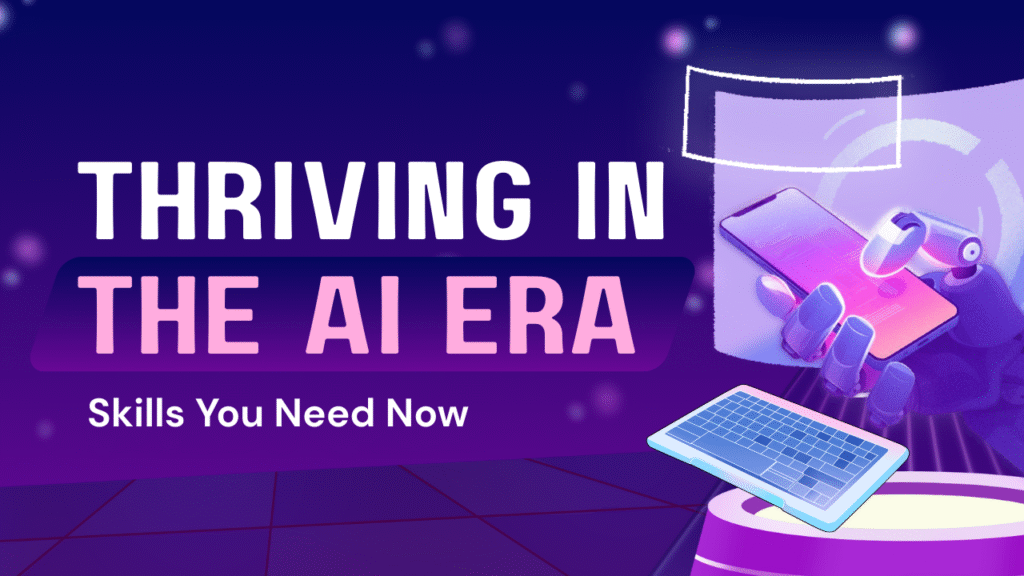Top 10 Digital Literacy Skills for Leaders in the New AI Era : The landscape of leadership is undergoing a seismic shift. As Artificial Intelligence (AI) rapidly integrates into every facet of business, the traditional skill sets that defined effective leadership are no longer sufficient. To navigate this new era, leaders must cultivate a robust understanding of digital technologies and their implications. This isn’t just about being tech-savvy; it’s about possessing a critical set of digital literacy skills that empower them to make informed decisions, foster innovation, and lead their teams with confidence.
But what exactly does define digital literacy in this context? It’s far more than just knowing how to use a computer or smartphone. Digital literacy encompasses the ability to find, evaluate, utilize, share, and create content using information technologies and the internet. For leaders, this definition expands to include understanding the strategic impact of digital tools, managing digital risks, and fostering a digitally fluent workforce.
In this article, we’ll explore the top 10 essential digital literacy skills that every leader needs to master to thrive in the AI-powered future. Whether you’re a seasoned executive or an emerging leader, understanding and developing these skills will be your competitive advantage.
Why is Digital Literacy Skills is Important for Leaders Today?
The rapid advancement of AI, machine learning, and data analytics presents both unprecedented opportunities and significant challenges. Leaders who lack digital literacy risk being outmaneuvered by competitors, misinterpreting data, falling victim to cyber threats, and failing to inspire their teams to embrace necessary digital transformations.
Why is digital literacy important for leaders? It enables them to:
- Drive Innovation: Understand how new technologies can solve business problems and create new market opportunities.
- Make Data-Driven Decisions: Critically analyze data and AI-generated insights to inform strategic choices.
- Enhance Security: Recognize and mitigate digital risks, protecting sensitive information and systems.
- Lead Digitally Fluent Teams: Foster a culture of digital learning and empower employees to leverage technology effectively.
- Communicate Effectively: Utilize digital channels for clear and impactful communication.
- Adapt to Change: Remain agile and responsive in a constantly evolving technological environment.
Ignoring these skills is akin to navigating a modern city without a map or GPS. It’s possible, but inefficient, risky, and ultimately, less successful.

The Top 10 Digital Literacy Skills for Leaders in the AI Era
Let’s dive into the crucial skills that will define effective leadership in the coming years.
1. AI and Machine Learning Fundamentals
Understanding the basic principles of AI and Machine Learning (ML) is no longer optional. Leaders don’t need to be coders, but they should grasp:
- What AI and ML are and how they differ.
- Common AI applications (e.g., predictive analytics, chatbots, automation).
- The potential benefits and limitations of AI in their specific industry.
- Ethical considerations surrounding AI deployment.
Actionable Tip: Dedicate time to learning through online courses, industry reports, or attending webinars. Focus on understanding the applications and strategic implications rather than the intricate technical details.
2. Data Literacy and Analytics
In the AI era, data is the new currency. Leaders must be comfortable with data, from understanding its collection and quality to interpreting complex analytics. This includes:
- Data Interpretation: Making sense of dashboards, reports, and AI-driven insights.
- Critical Evaluation: Questioning the source, methodology, and potential biases of data.
- Identifying Trends: Spotting patterns and anomalies within datasets.
- Understanding Metrics: Knowing which key performance indicators (KPIs) are crucial for measuring success.
Actionable Tip: Invest in a digital literacy course focused on data analytics for leaders. Practice by asking clarifying questions during data review meetings and seeking out data visualization tools that simplify complex information.
3. Cybersecurity Awareness and Risk Management
As digital operations expand, so do cyber threats. Leaders must have a foundational understanding of cybersecurity to protect their organizations. This means knowing:
- Common cyber threats (phishing, ransomware, data breaches).
- Best practices for data security and privacy.
- The organization’s security policies and protocols.
- How to respond to a potential cyber incident.
Actionable Tip: Regularly review your organization’s cybersecurity posture with your IT team. Educate yourself on emerging threats and ensure your team is trained on basic security hygiene.
4. Digital Strategy and Transformation
Leaders need to think strategically about how digital technologies can propel their organizations forward. This involves:
- Identifying opportunities for digital innovation.
- Developing roadmaps for digital transformation initiatives.
- Aligning digital strategies with overall business goals.
- Understanding the change management aspects of digital adoption.
Actionable Tip: Stay abreast of technological advancements in your industry. Encourage cross-departmental collaboration to brainstorm digital solutions and pilot new technologies.
5. Digital Communication and Collaboration Tools
Effective leadership in a digital age relies on mastering the tools that facilitate communication and collaboration. This includes:
- Proficiency with project management software (e.g., Asana, Trello).
- Understanding video conferencing platforms (e.g., Zoom, Microsoft Teams).
- Leveraging cloud-based collaboration suites (e.g., Google Workspace, Microsoft 365).
- Knowing how to foster an inclusive digital meeting environment.
Actionable Tip: Actively participate in training for these tools. Experiment with different features to find the most efficient ways to communicate and collaborate with your team.
6. Cloud Computing Concepts
The cloud underpins many modern digital services. Leaders should have a basic understanding of:
- What cloud computing is (SaaS, PaaS, IaaS).
- The benefits and drawbacks of cloud adoption.
- How cloud services impact data storage, security, and accessibility.
Actionable Tip: Discuss your organization’s cloud strategy with your IT department. Understand how cloud services are leveraged to support business operations.
7. Digital Ethics and Responsible AI
As AI becomes more prevalent, ethical considerations are paramount. Leaders must grapple with:
- Bias in AI algorithms and its impact.
- Data privacy concerns and regulations (e.g., GDPR, CCPA).
- Transparency and explainability in AI decision-making.
- The societal implications of AI deployment.
Actionable Tip: Integrate ethical discussions into AI strategy meetings. Advocate for transparent AI practices and ensure data usage complies with all privacy regulations.
8. Digital Content Creation and Curation
While not all leaders need to be content creators, understanding the principles of digital content is vital for effective communication and branding. This includes:
- Basic understanding of content formats (text, video, infographics).
- Knowing how to evaluate the credibility of online information.
- Understanding the principles of effective digital storytelling.
- Leveraging content for marketing, internal communication, and thought leadership.
Actionable Tip: Pay attention to how successful organizations communicate digitally. Learn from their use of various content formats and platforms.
Read More – Active vs Passive Investing: Why Retail Investors Keep Losing (and How to Win)
9. Digital Transformation Leadership
This skill is about more than just understanding technology; it’s about leading people through change. Leaders need to:
- Champion digital initiatives and articulate a clear vision.
- Motivate teams to adopt new technologies and processes.
- Foster a culture of continuous learning and adaptability.
- Manage resistance to change effectively.
Actionable Tip: Be an advocate for your team’s learning and development in digital skills. Celebrate successes in digital adoption and openly address challenges.
10. Adaptability and Continuous Learning
Perhaps the most critical skill of all is the commitment to continuous learning. The digital landscape is constantly evolving, and leaders must be willing to:
- Stay curious about new technologies and trends.
- Embrace new tools and platforms as they emerge.
- Be open to unlearning outdated practices.
- Encourage a learning mindset within their teams.
Actionable Tip: Make learning a non-negotiable part of your routine. Allocate specific time each week for reading industry news, exploring new tools, or taking short online courses.
Navigating the Future: A Call to Action
In conclusion, mastering these digital literacy skills is not merely an advantage for leaders in the AI era; it is a necessity. By understanding AI fundamentals, data analytics, cybersecurity, digital strategy, communication tools, cloud concepts, ethical considerations, content principles, transformation leadership, and the importance of continuous learning, leaders can position themselves and their organizations for success.
The journey to enhanced digital literacy doesn’t happen overnight. It requires a commitment to ongoing education and practice. Consider enrolling in a comprehensive digital literacy course or seeking out executive education programs designed to equip leaders with these vital competencies.
Embrace the challenge, cultivate your digital intelligence, and lead your team confidently into the future. The AI era is here – are you ready to lead?
Follow us on








